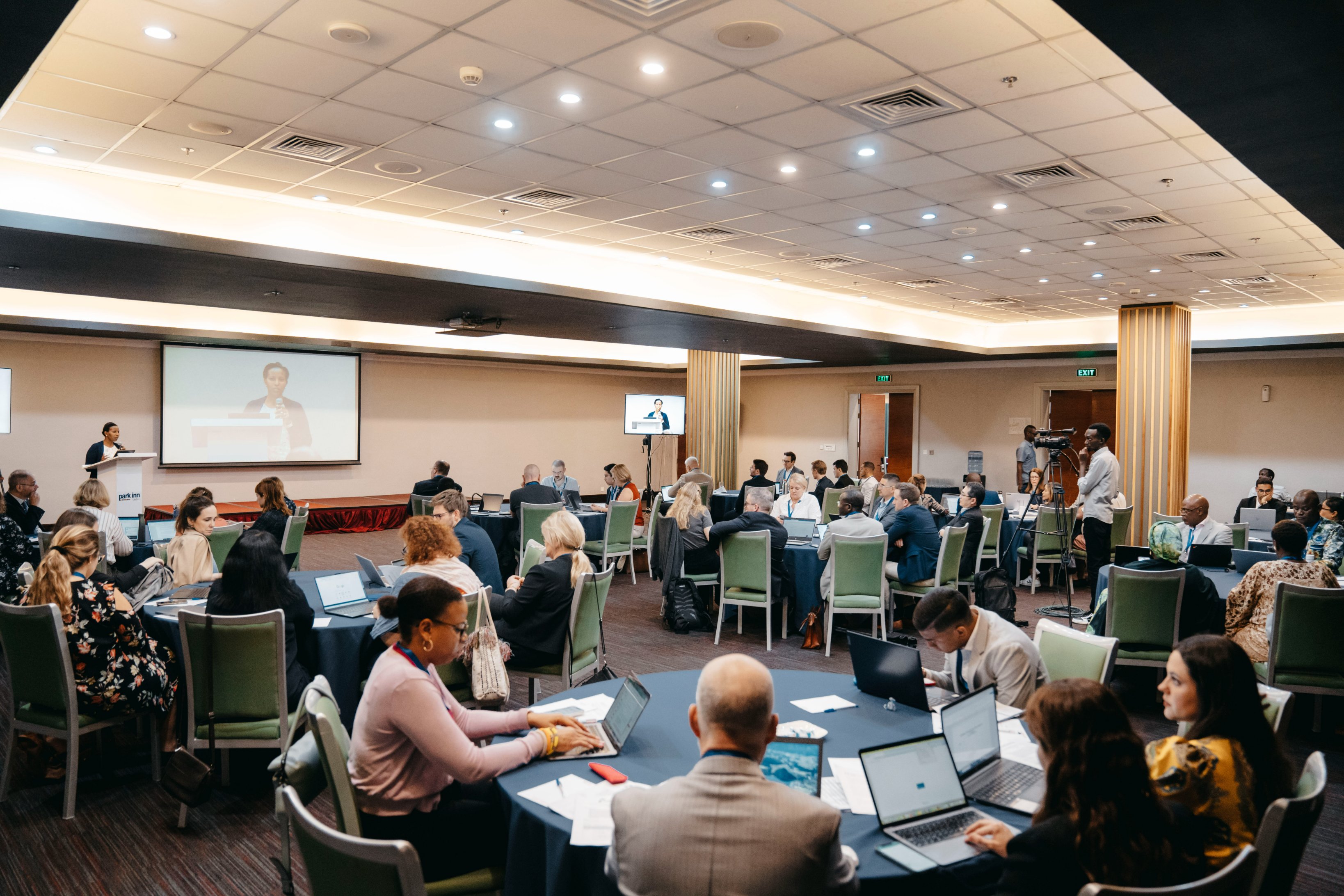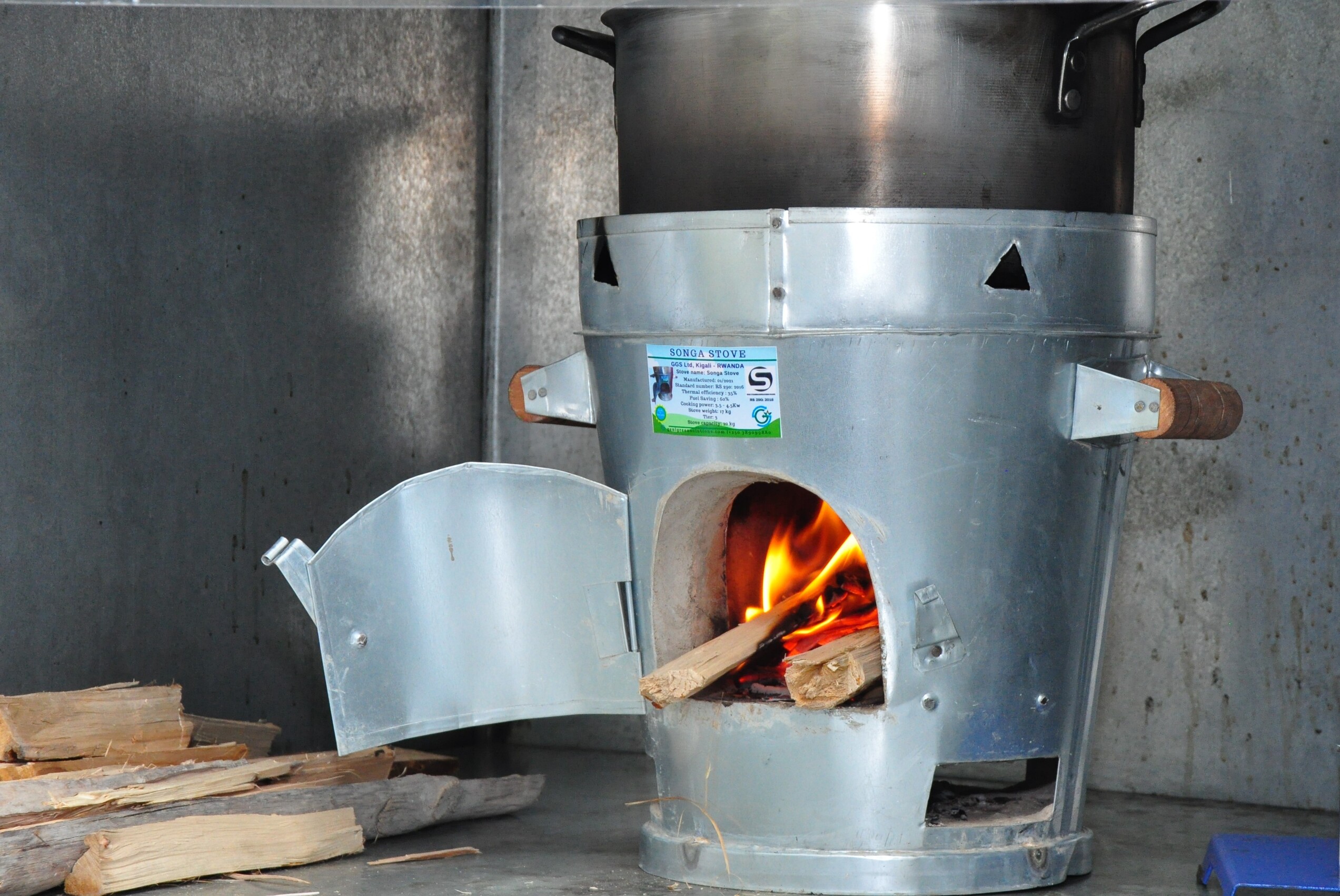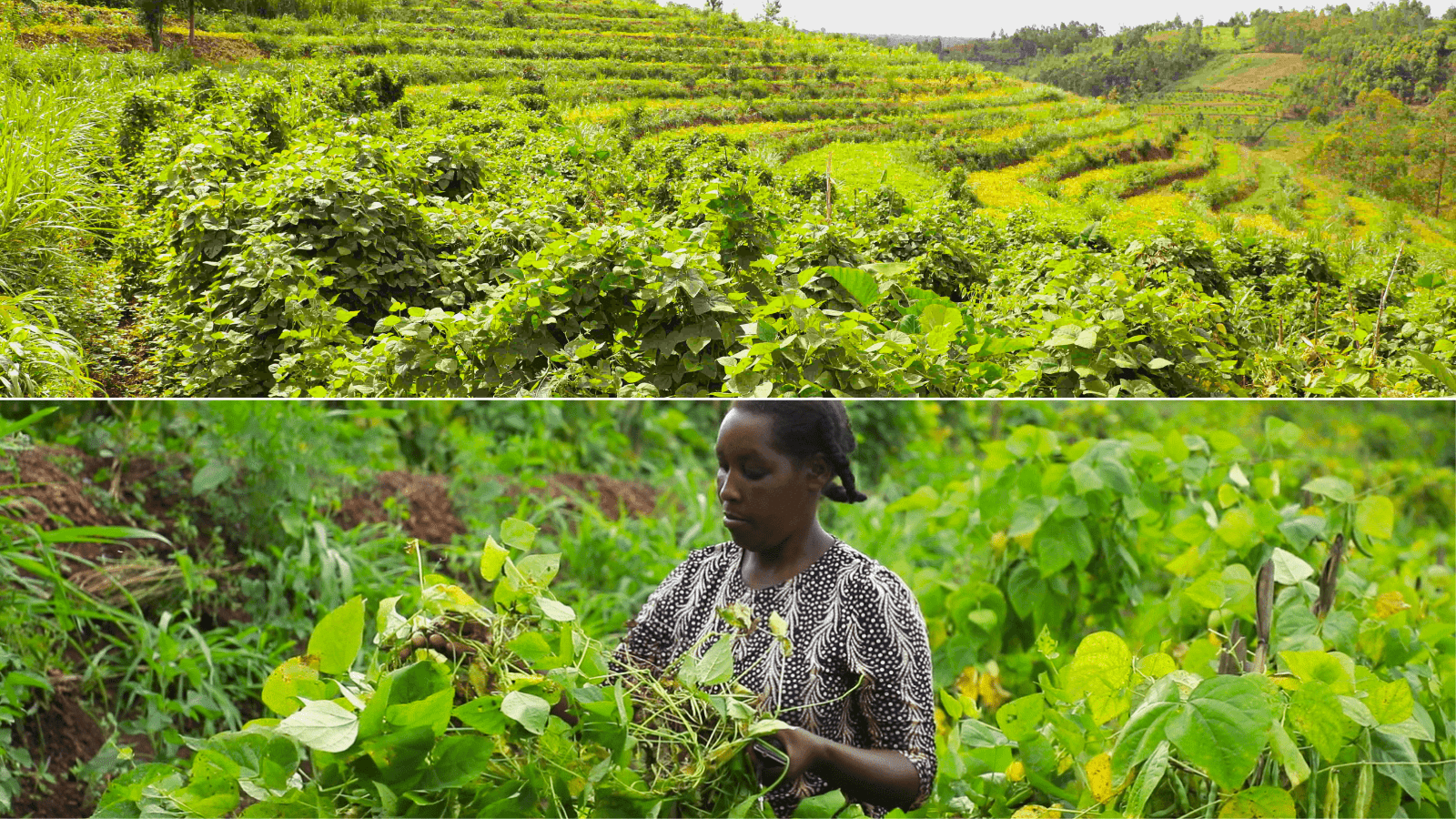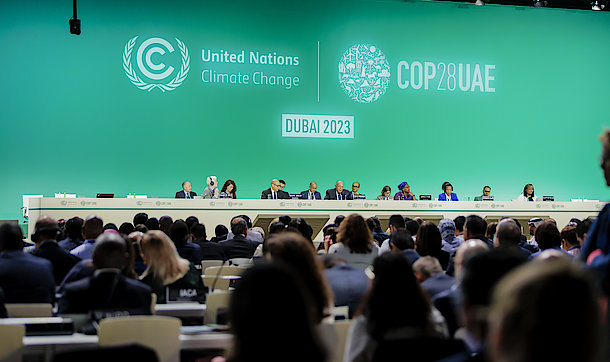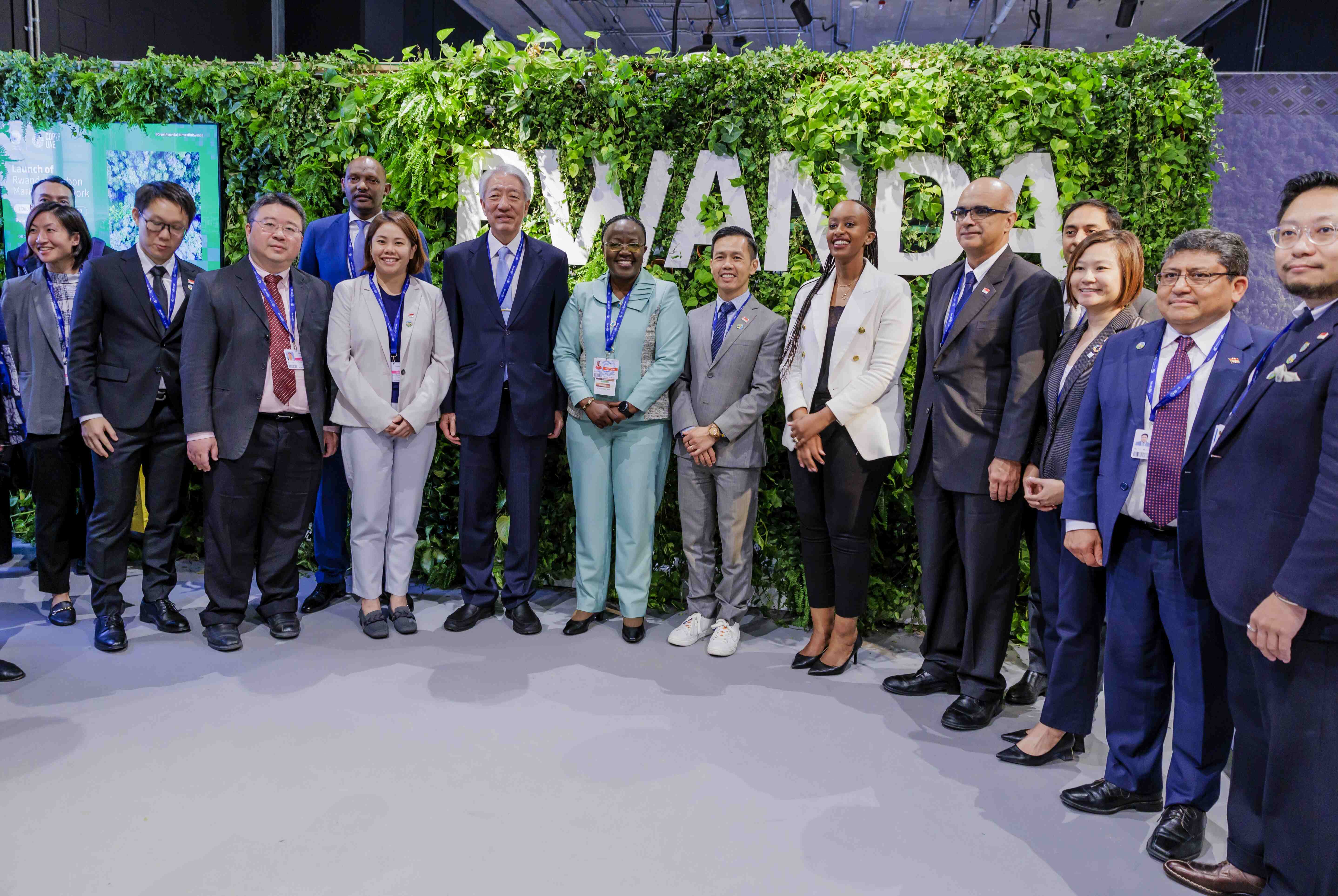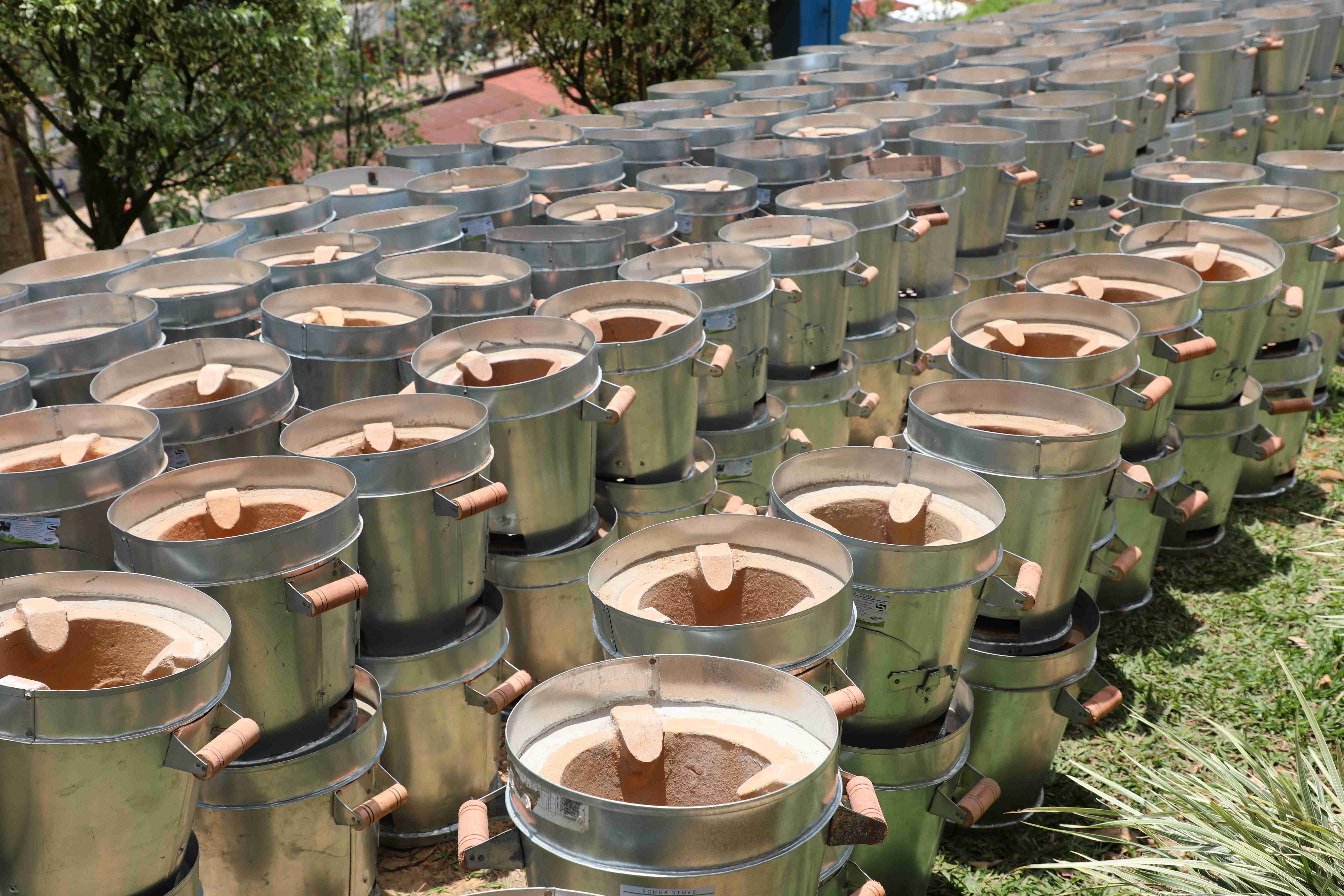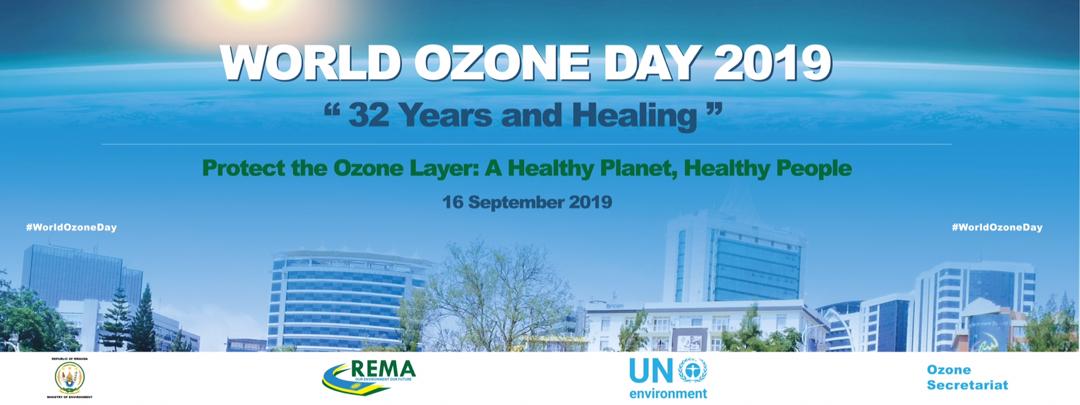
Rwanda joins the rest of the world to celebrate the World Ozone Day 2019
Rwanda is this coming Monday joining the rest of the world to celebrate the World Ozone Day celebrated under the theme “32 years and healing”. The day is celebrated annually on 16th September, proclaimed by the UN General Assembly to be the International Day for the Preservation of the Ozone Layer.
This acknowledges the date of 16 September when representatives from 24 countries met in Montreal-Canada and announced to the world that it was time to stop destroying the ozone layer (16September 1987).
The theme for this year celebrates over three decades of remarkable international cooperation to protect the ozone layer and the climate under the Montreal Protocol. It reminds us that we must keep up the momentum to ensure healthy people and a healthy planet.
For Rwanda, by celebrating the World Ozone Day, the country celebrates its success with its support to the Montreal Protocol especially the Kigali Amendment to the Montreal Protocol, which entered into force on 1 January 2019. Currently, more than 78 countries have already ratified the Kigali Amendment to phase out hydrofluorocarbons (HFCs) that are most potential climate-warming gases. It is important to note that the phasing down of HFCs, will avoid up to 0.4°C of global temperature rise by the end of the century.
Causes and Effects of Ozone Layer depletion
The Ozone layer depletion is normally caused by human activities and human made chemicals especially manufactured halocarbon refrigerants, solvents, propellants and foam-blowing agents that bring chlorine and bromineto the stratosphere, causing then the depletion of ozone layer.
The Ozone layer depleting substances include Chlorofluorocarbons (CFCs), Hydrochlorofluorocarbons (HCFCs), Hydrobromofluorocarbons (HBFCs), Halons, Methyl bromideandCarbon tetrachloride. Those substances have been used as refrigerants in air conditioners, refrigeration equipment, cold rooms and other cooling systems.
The effects of Ozone layer depletion of on human beings include skin cancer, increase in risk of cataract, weakened human immune systems , DNA damage as well as Lung Diseases since Ultraviolet radiations can disturb biomolecules such as lipids, proteins and Nucleic acids.
Effects of ozone layer depletion can also lead to food shortage as Ultraviolet radiations disturb developmental and physiological processes that decrease the productivity of crops.
Ultraviolet radiation also affects wildlife as well since ozone depletion may lead to a loss of plant species and reduce global food supply.
To contribute to the protection of Ozone layer, people are encouraged to use natural gases, timely maintain their cooling equipment such as air conditioners, refrigerators and other heating and cooling systems and also avoid usage gases and chemical products that are dangerous to the ozone layer.
Topics
More posts
Rwanda hosts a two-day workshop for Negotiators of the High Ambition Coalition to End Plastic Pollution
Rwanda has from 14th to 16th February hosted a two-day workshop for negotiators of the High Ambition Coalition to End Plastic Pollution (HAC). The…
LDCF3 Project’s Improved Cookstoves: A Dual Solution for Climate Change and Human Health
In a ground-breaking move towards sustainable living, the Rwanda Environment Management Authority (REMA) is making significant strides in the fight…
From reluctance to acceptance: The LDCF3 Project beneficiaries embraces terraces for agricultural transformation
The beneficiaries of the Ecosystem/Landscape Approach to Climate Proof the Rural Settlement Programme of Rwanda, also known as LDCF3 Project, who…
Rwanda welcomes historic COP28 decision to transition away from fossil fuels
The Government of Rwanda has welcomed the ground-breaking decision made at the 28th Conference of the Parties (COP28) to the United Nations Framework…
Rwanda launches Carbon Market Framework to advance Climate Action for a Sustainable Future
Rwanda has today launched its National Carbon Market Framework in a significant stride towards a greener and more sustainable future. The framework…
Over 45 professionals complete a capacity-building program in climate change analysis and reporting
Kigali, 17 November, 2023- Kigali, REMA, in collaboration with the African Institute for Mathematical Sciences in Rwanda(AIMS_Rwanda), celebrated the…
REMA’s LDCF3 Project distributes 5,000 improved cookstoves to beneficiaries to tackle climate change
The Rwanda Environment Management Authority distributes 5,000 improved cookstoves to beneficiaries of the Landscape Restoration Approach to Climate…
BIOFIN’s Technical Advisor on Environmental Finance visits Rwanda to foster stakeholder engagement
The Biodiversity Finance Initiative (BIOFIN)’s Technical Advisor on Environmental Finance for Africa, Mr. Bruno Mweemba recently visited Rwanda from…
World Ozone Day: REMA recognizes students and lecturers with technologies and eco-friendly cooling solutions
Rwanda in September 2023 joined the rest of the world to mark the World Ozone Day with the theme “Montreal Protocol: Fixing the Ozone layer and…
